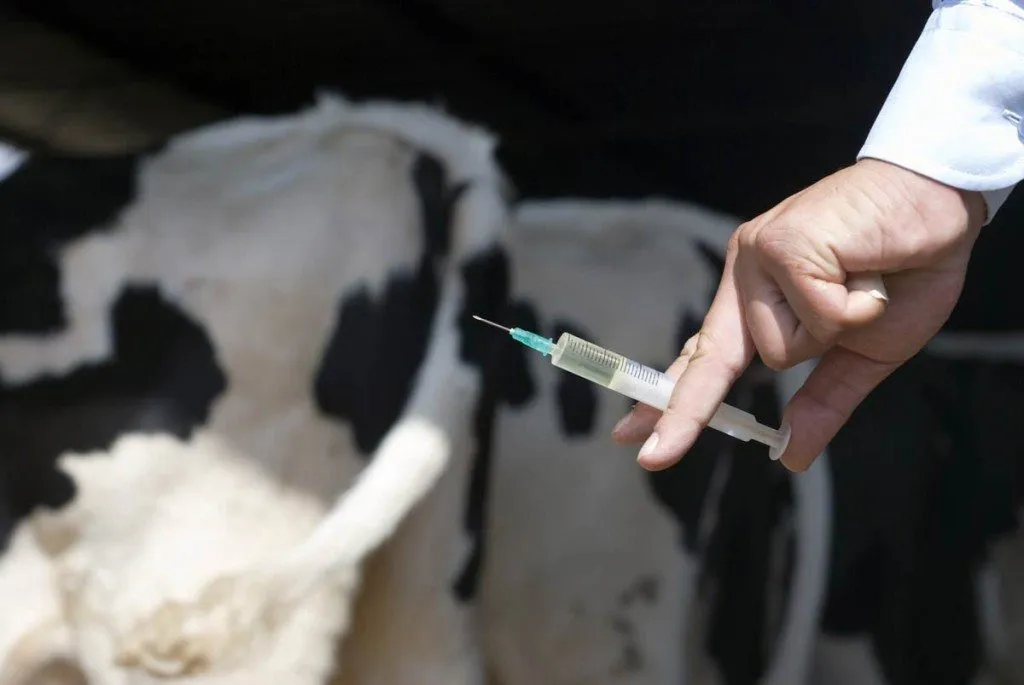Amid fierce competition to increase livestock productivity, recent reports have uncovered alarming practices committed against cows and buffaloes in several countries, including India, Bangladesh, and Pakistan. Investigations especially one published by the Federation of Indian Animal Protection Organizations (FIAPO) revealed that thousands of animals are injected daily with oxytocin, a hormone used to stimulate milk production, despite it being legally banned due to the severe pain and dangerous complications it causes to the animals.
Oxytocin, which is supposed to be used only during labor and under medical supervision, is being injected arbitrarily into cows and buffaloes two or more times a day to force them to produce more milk. This practice not only inflicts pain equivalent to constant labor contractions, but also damages the animal’s internal organs and destroys its reproductive system over time.
FIAPO’s report, which included field visits to around 49 farms in Rajasthan, found that 87% of the animals are kept tied up at all times, living in filth and waste with no sanitation. Injuries and fractures were documented in some animals with no medical treatment provided. Perhaps the most tragic aspect is the fate of male calves, which are considered economically "useless" and are often abandoned or left to die.
The issue goes beyond ethics and into public health. Medical professionals warn that residues of oxytocin in milk can lead to hormonal disorders in humans, particularly in children and pregnant women, causing conditions such as early puberty, polycystic ovary syndrome (PCOS), and reduced fertility.
Although laws like the Animal Protection Act and the Drug Misuse Act prohibit these practices, weak enforcement and the ease of obtaining oxytocin on the black market have allowed the problem to spread widely with little accountability. In the absence of strong governmental will to address the crisis, producers continue to exploit these gaps at the expense of human health and animal dignity.
What is especially disheartening is that this crisis is unfolding at a time when food production practices should be moving toward greater sustainability and humanity. Animal rights advocates are calling for a comprehensive review of agricultural policies, strict regulation of veterinary drugs, and support for ethical alternatives such as organic farming.
Consumers also share a part of the responsibility. Choosing milk and dairy products from trusted or certified organic sources, and applying public pressure for stricter laws, can be part of the solution to this painful reality.
Source: https://www.fiapo.org/
